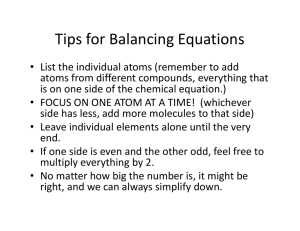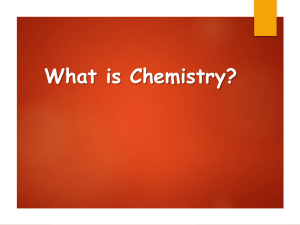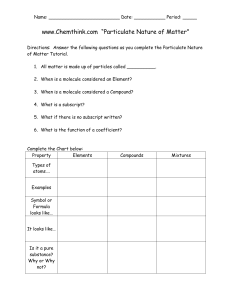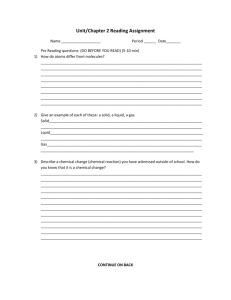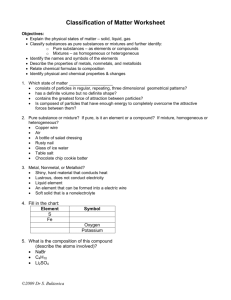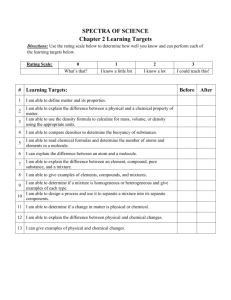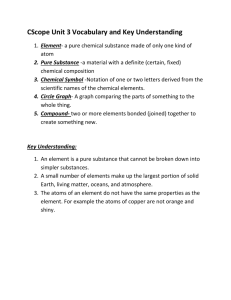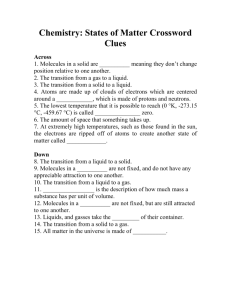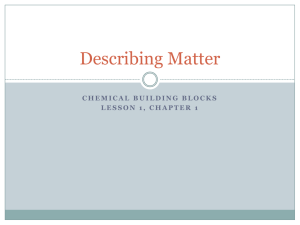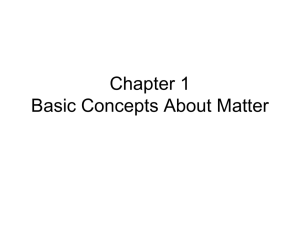What is Matter and why does it Matter?
advertisement
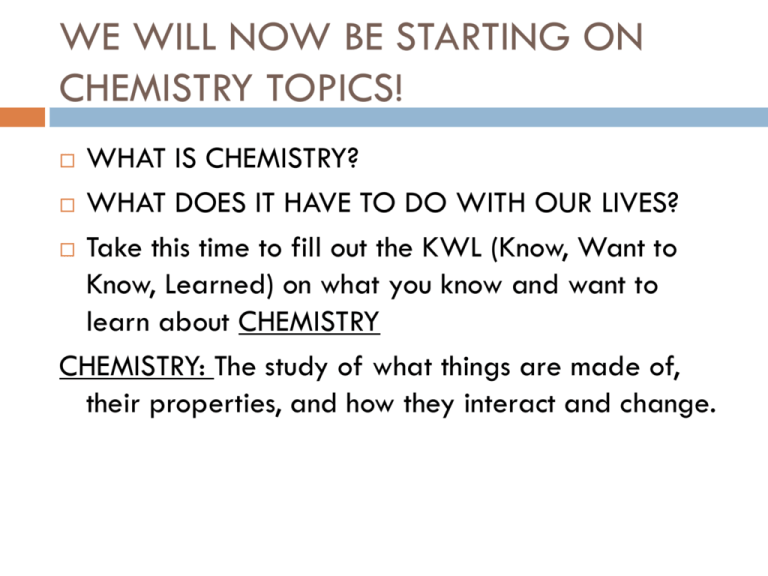
WE WILL NOW BE STARTING ON CHEMISTRY TOPICS! WHAT IS CHEMISTRY? WHAT DOES IT HAVE TO DO WITH OUR LIVES? Take this time to fill out the KWL (Know, Want to Know, Learned) on what you know and want to learn about CHEMISTRY CHEMISTRY: The study of what things are made of, their properties, and how they interact and change. Chapter 1 Test 2st Period Average: 30/44 High Scores: Logan* and Madi 3rd Period Average: 31/44 High Scores: Mercedes and Ceara 4th Period Average: 32/44 High Scores: Danny C, Ethan*, Haylie, and Sam WHAT IS MATTER AND WHY DOES IT MATTER? CHAPTER 2 - MATTER What is Matter? Anything you can hold or touch is matter. Matter is anything that has mass and occupies space (volume). Examples include you, your friends, and the table you are sitting at. Is It Matter Oxygen The Air you breathe Light A rock The moon Light What is Matter Made of? Atoms are the building blocks of all matter. There are many different kinds of atoms, 117 in all. These different kinds are called elements. By combining these we get every known matter. What element are these made of? What is the Human Body Made Of? How does it work? Elements combine to form compounds Example: Nylon – made up of carbon, hydrogen, nitrogen, and oxygen atoms Compounds have unique properties, every compound is different from the elements that make it. The elements that form nylon are gases, yet when combined they produce a flexible solid Molecules Atoms can also combine to form molecules. A molecule is the smallest unit of a substance that keeps the same physical and chemical properties. Example: Water – made up of two hydrogen atoms and one oxygen atom (H20). These elements join together to form a unit so that each water molecule is uniform Chemical Formulas We use chemical formulas to represent compounds and our molecules. A chemical formula shows how many atoms of each element are in a unit of a substance Example H20 What we have so far? Everything that has mass and volume is matter. Matter is made up of atoms. Two or more different types of atom equals a compound. Atoms combine to form molecules which act as a unit What do compounds and molecules form to make? Pure Substances and Mixtures Pure substances have a fixed composition and definite properties. Example is water. Mixture is a combination of pure substances. Example is salt water A mixture can be separated into its core components without a chemical change while a pure substance cannot. Pure Substance or Mixture A block of Iron The air we breathe A glass of water A glass of orange juice Mixtures Are formed by mixing pure substances. Mixtures are classified by how thoroughly the substances mix. Homogeneous mixtures-mixture is same throughout. Heterogeneous mixture-mixture is not the same throughout. Heterogeneous or Homogeneous Review Matter is anything with mass and a volume. Matter is made up of atoms. Atoms make up molecules and compounds. Molecules and compounds make up mixtures and pure substances. Mixtures are either homogeneous or heterogenous.
